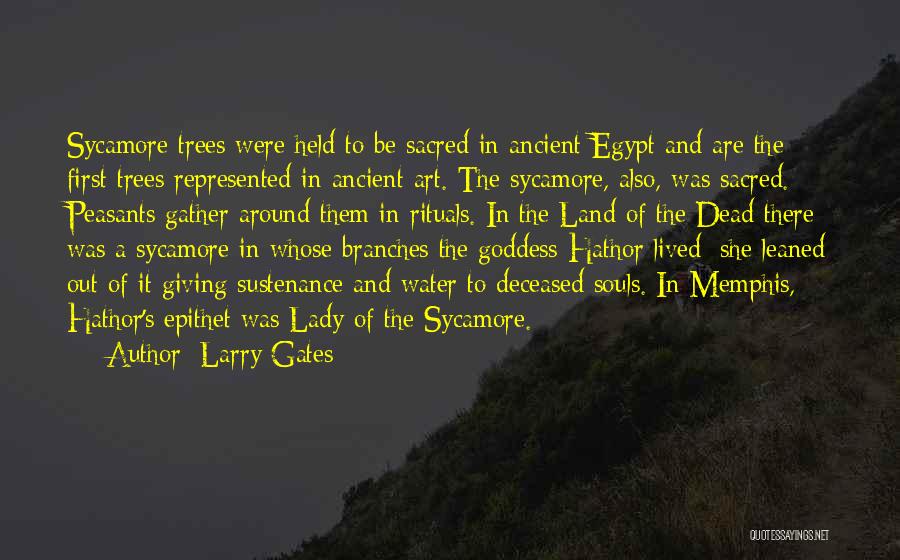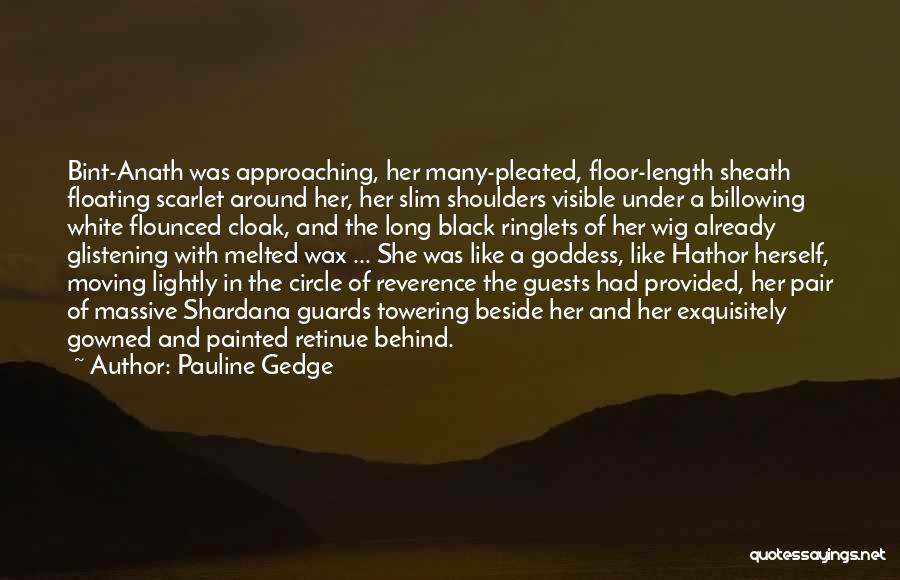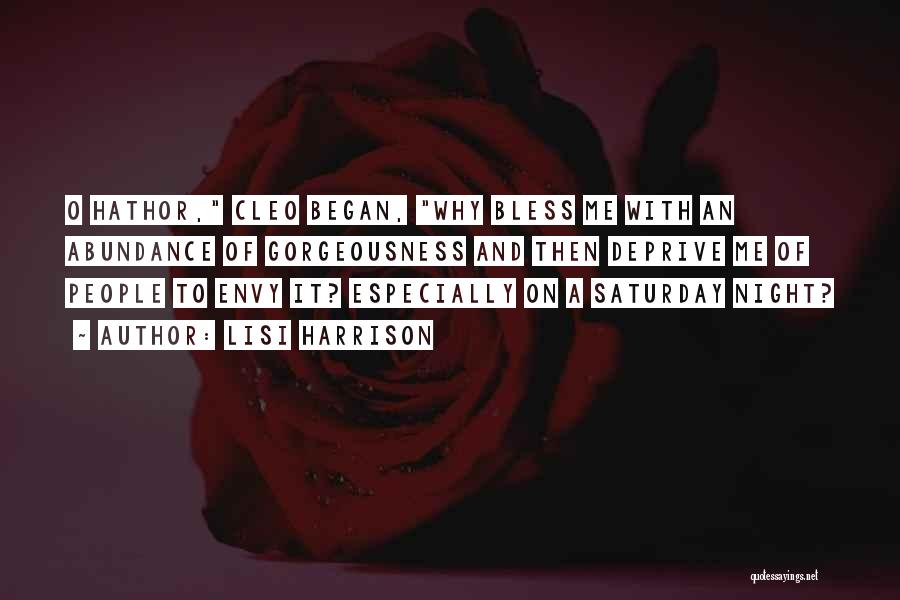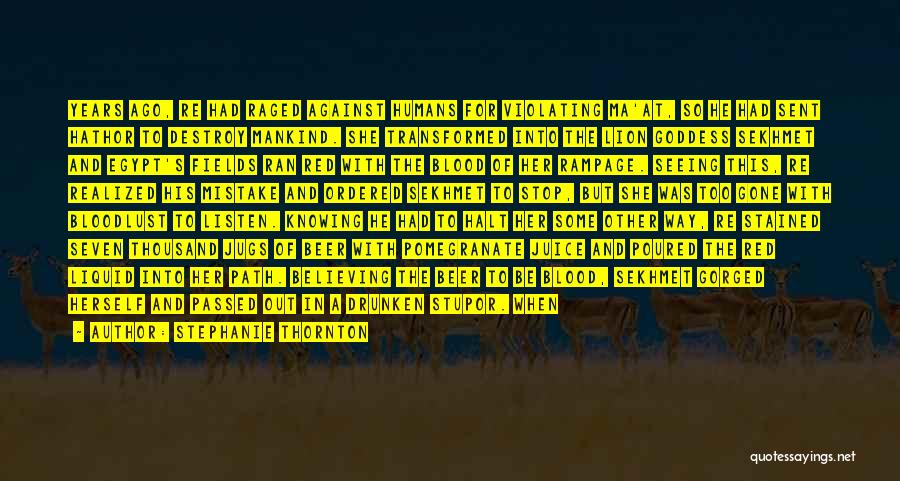Hathor Quotes & Sayings
Enjoy reading and share 4 famous quotes about Hathor with everyone.
Top Hathor Quotes

Sycamore trees were held to be sacred in ancient Egypt and are the first trees represented in ancient art. The sycamore, also, was sacred. Peasants gather around them in rituals. In the Land of the Dead there was a sycamore in whose branches the goddess Hathor lived; she leaned out of it giving sustenance and water to deceased souls. In Memphis, Hathor's epithet was Lady of the Sycamore. — Larry Gates

Bint-Anath was approaching, her many-pleated, floor-length sheath floating scarlet around her, her slim shoulders visible under a billowing white flounced cloak, and the long black ringlets of her wig already glistening with melted wax ... She was like a goddess, like Hathor herself, moving lightly in the circle of reverence the guests had provided, her pair of massive Shardana guards towering beside her and her exquisitely gowned and painted retinue behind. — Pauline Gedge

O Hathor," Cleo began, "why bless me with an abundance of gorgeousness and then deprive me of people to envy it? Especially on a Saturday night? — Lisi Harrison

Years ago, Re had raged against humans for violating Ma'at, so he had sent Hathor to destroy mankind. She transformed into the lion goddess Sekhmet and Egypt's fields ran red with the blood of her rampage. Seeing this, Re realized his mistake and ordered Sekhmet to stop, but she was too gone with bloodlust to listen. Knowing he had to halt her some other way, Re stained seven thousand jugs of beer with pomegranate juice and poured the red liquid into her path. Believing the beer to be blood, Sekhmet gorged herself and passed out in a drunken stupor. When she awoke, her bloodlust had passed and she returned to being Hathor. Thus the goddesses of love and violence shared a common history. — Stephanie Thornton





